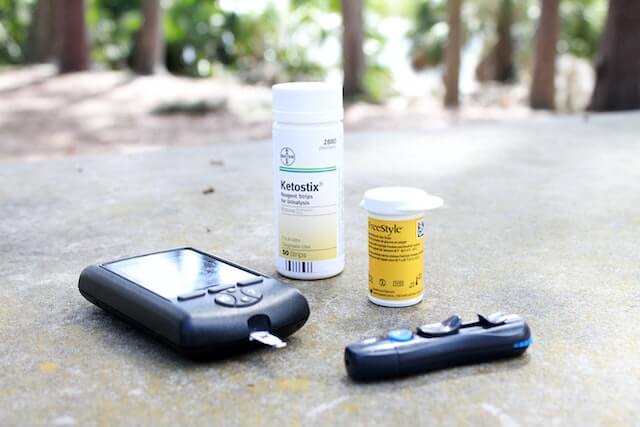Diabetes Care
Diabetes Care and Management
Living with diabetes can be incredibly challenging. This chronic disease affects the way your body processes glucose, which can lead to a range of health issues if not managed properly. From monitoring your blood sugar levels to making healthy lifestyle choices, managing diabetes requires constant effort and attention. However, with the right medical care and support, it is possible to successfully manage diabetes and live a healthy, fulfilling life.

At Live Clinic, our team of healthcare providers understands the unique challenges that come with living with diabetes. We are dedicated to providing top of the line care and support to help our patients manage their condition and improve their overall health and wellbeing.
One of the biggest challenges of living with diabetes is monitoring blood sugar levels. This requires regular testing and tracking of glucose levels throughout the day. At Live Clinic, we offer a range of tools and resources to help patients track their blood sugar levels, including in-office testing and at-home monitoring devices.
Diabetes
Diabetes (also known as diabetes mellitus or DM) is the term commonly used to describe a group of metabolic diseases that stems from the body’s inability to produce insulin, the hormone that regulates the amount of glucose (or blood sugar) produced by the body. A lack of insulin results in heightened glucose levels, which in turn can lead to a series of health complications. Those complications may include stroke, cardiovascular disease, kidney failure, and damage to areas such as the skin, eyes and feet. Diabetes is a deadly disease that affects many Americans and claims millions of lives every year. However, its effects can be mitigated or even prevented with a healthy and active lifestyle, as well as regular doctors’ visits.
Diabetes Symptoms
According to the American Diabetes Association, people with diabetes may experience any or all of the following symptoms to varying degrees of severity:
- Frequent urination
- Excessive thirst
- Chronic hunger
- Rapid weight loss
- Extreme fatigue
- Blurred vision
- Slow-healing cuts and bruises
- Pain or numbness in hands and/or feet

Diabetes Types
There are three key kinds of symptomatic diabetic conditions: type 1 diabetes, type 2 diabetes and gestational diabetes. A fourth kind of diabetes, prediabetes, often does not register any notable signs or symptoms, but could lead to type 2 diabetes if left unchecked.
Type 1 Diabetes
Type 1 diabetes is a condition in which your pancreas stops producing insulin, resulting in high glucose levels and increased risk for health complications. This form of diabetes can develop at any age, though it typically begins in childhood or early adulthood. While hereditary factors may influence whether someone gets type 1 diabetes, most people with the disease did not exhibit a previous family history. People with type 1 diabetes may show symptoms over a period of a few days to a few weeks. Patients are urged to seek medical care as soon as one or more symptoms present themselves; failure to report symptoms in a timely manner can lead to such complications as diabetic ketoacidosis (DKA), a life-threatening blood chemical (electrolyte) imbalance.
Type 2 Diabetes
Whereas type 1 diabetes is caused by the body’s inability to make insulin, type 2 diabetes occurs occurs when the body is unable to produce enough insulin or use the insulin it makes in an efficient or useful manner. Type 1 may be the most deadly form of diabetes, but type 2 diabetes is the most common. A variety of factors can influence one’s predisposition toward acquiring type 2 diabetes, including genes, excess body weight and metabolic syndrome. However, there are factors outside of one’s control that may lead that person to get type 2 diabetes: people at or over the age of 45 years old, a previous family history of the disease, or belonging to certain minority groups that may be prone to the disease. Regular checkups with your physician can help you determine whether you are in danger of developing type 2 diabetes, which in turn can help you to eliminate or lessen its effects.
Gestational Diabetes
Gestational diabetes is a condition that exclusively affects pregnant women. They may not always be aware that they have it, as in many cases symptoms do not present themselves. For most of these women, gestational diabetes is a temporary form of diabetes caused by increased glucose levels. Pregnant women produce more glucose in order to nourish their gestating babies, but in the process they become more insulin resistant and need more of the hormone to process the extra glucose. The pancreas struggles to adapt to this increased insulin demand and rising glucose levels, resulting in gestational diabetes. This condition in pregnant women is not permanent and typically reverses itself once a woman gives birth. Still, these women should ask their doctors to monitor their condition post-pregnancy in order to determine whether they develop type 2 diabetes later in life.
Though diabetes can be deadly if not treated properly, there are strategies one can apply to lessen symptoms and preserve health. If you experience one or more symptoms, ask to take a glucose test that will determine your diagnosis. Cases of type 1 diabetes can be managed with regular doses of insulin along with healthy lifestyle changes. Type 2 diabetes cases also require dietary changes and exercise, but typically can be managed through non-insulin medication.



